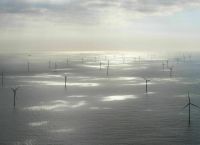Greece Ranks Second in Environmental Pollution in the EU

Πηγή Φωτογραφίας: freepik//Greece Ranks Second in Environmental Pollution in the EU
According to the latest Eurostat data for 2023, Malta, Greece, Germany, and France are the most environmentally stressed countries in the European Union. Citizens continue to feel the impacts of environmental degradation in their daily lives: 12.2% of EU residents report experiencing noticeable pollution that affects their quality of life. Although this figure has decreased by three percentage points since 2010, the situation remains concerning for many countries.
Malta maintains the top spot, with 34.7% of citizens reporting that pollution diminishes their quality of life. Greece follows in second place, with 20.5% of residents living in low-quality environmental conditions. Germany (16.8%) and France (16%) complete the top four.

Urban centers, overtourism, and social dimensions
The highest environmental pressures are observed in major urban areas. In Greece, the contrast between cities and rural areas is stark: in villages and rural regions, the percentage drops to 2.8%, compared with the European average of 5%.
Overtourism and ongoing population migration to metropolitan areas have pushed cities to critical levels, intensifying environmental stress and social inequalities. This trend has fueled a movement towards rural areas, where residents seek a cleaner environment, lower housing costs, and a better quality of life.
The social justice dimension is clear: households at risk of poverty are much more likely to live in high-pollution areas. Specifically, 14.1% of poor individuals in the EU consider pollution a major problem, compared to 11.9% of non-poor individuals.
Slovakia records the greatest disparity, with poor households reporting pollution at 17.6%, nearly four times higher than the 3.8% of non-poor households. Significant differences are also seen in Bulgaria, Denmark, and the Netherlands. Conversely, in nine EU countries, including Malta, Cyprus, Latvia, and Romania, non-poor households report higher environmental burdens, with Greece showing only a marginal difference of 0.3 percentage points.
ESG and Environmental Inequality
These data indicate that environmental pollution is not only an ecological issue but also a matter of social justice, linking ESG (Environmental, Social, Governance) principles to citizens’ daily lives. European cities face pressures from:
- Overpopulation and urbanization
- Tourism-driven growth
- Social and economic inequalities
Despite the overall reduction in pollution since 2010, regional disparities and income-related inequalities continue to exacerbate environmental injustice. The challenge for European societies is twofold:
- Reduce pollution in both cities and rural areas
- Ensure all citizens have access to a clean and healthy environment, regardless of income or place of residence
Source: pagenews.gr
Διαβάστε όλες τις τελευταίες Ειδήσεις από την Ελλάδα και τον Κόσμο






Το σχόλιο σας